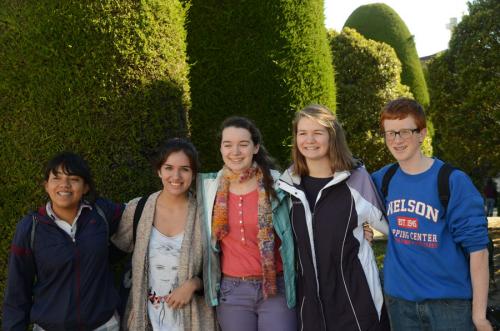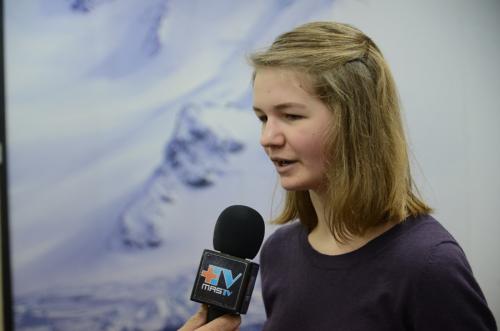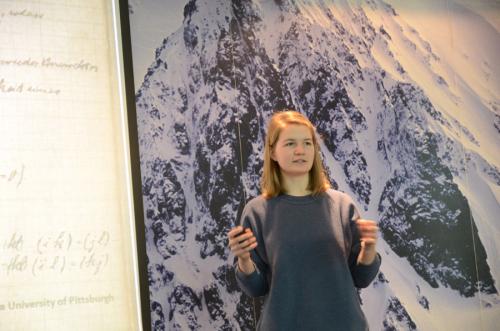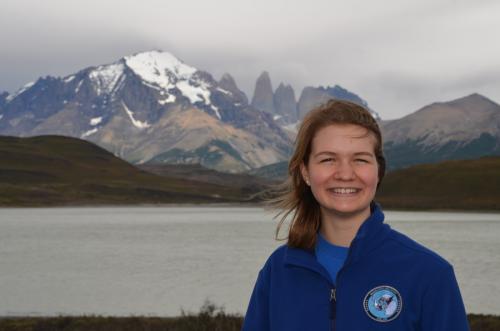We’ve been back in the United States for about a month and a half now, and it’s time for all of us to reflect on what our Chilean experience meant to us. It seems like ages ago, but when we were in the Madison airport waiting for our flight to Atlanta, we each wrote a short paragraph about our expectations for the trip.
Looking back at what I wrote, I can remember the excitement I was feeling as we prepared for the trip. First, I listed that I was looking forward to working with the Chilean students and researchers, and I said that I hoped to improve my people skills and my Spanish skills through those interactions. The trip definitely allowed me to meet these goals. The Chileans were all fantastic to work with; it was a unique and special experience to immediately be welcomed and treated so well by a group of strangers. Just as we were curious about the Chilean students’ lives, they were very curious about ours; this interest supplied the conversation during many meals throughout the trip.
Talking with people who were so approachable was great in and of itself, but my relationship with a couple of the students developed even further. Over the course of our time together, Anna and I became particularly close with two students from Santiago: Reynalda and Estrella. What we shared with them was remarkable because all of us had so much confidence in one other. After spending some time with the two of them and hearing about their research project, I felt without a doubt that they would go extremely far in science; Anna agreed. On one of our last days together, we told them so, and to my surprise and pleasure, they said they had the same expectations for us. It was really powerful that two people we had known for less than two weeks had such faith in us and our abilities. We all promised that we would meet again someday in the world of science, if not in Antarctica this year; the Chilean students will get another chance at an expedition to Antarctica this fall. The prospects for our return are uncertain, but the Chilean and US students alike dream of the US students returning so we can continue to learn from one another and learn science together. A distraught Reynalda told us that a second expedition wouldn't be the same without us, and I think we all feel a pull to go back. However, even if we don’t have the opportunity to return this time, I believe we all have the drive and ability to make it happen in the future if we want it.

Working with the Chileans also meant having to speak quite a lot of Spanish, which not only taught me a few Chilean expressions but also increased my confidence with speaking in any language. Throughout the trip, I was in an environment where it was not easy for me to make sense of things right away. I speak decent Spanish, but understanding native speakers was another matter entirely. I realized that I had to be particularly confident and brave when communicating in Spanish. I had to actively work to understand what was going on and ask questions if I didn't understand. My confidence was truly put to the test when I was interviewed in Spanish for various media outlets. I really had to ignore any embarrassment about making mistakes and just go for it. Interviews and public speaking are nerve-wracking even in English, so as Anna wisely told me, I can do anything now that I've tackled public speaking in Spanish. I know that facing these challenges was a good exercise for me, and I will do my best to see that the confidence I feel I've gained makes its way into my everyday life.

Returning to my pre-trip overview of my expectations, I wrote that I also hoped to gain knowledge about and appreciation for Antarctica and its science. Unfortunately, I did not learn nearly as much about Antarctic science as I would have hoped. Much of this learning, after all, would have taken place on King George Island. I am disappointed that I missed such an amazing opportunity to learn science firsthand. Of course, this will not stop me from learning about Antarctic science in the future; if anything, I’m even more curious about Antarctica now. Even though we did not get to do much science ourselves, I still feel that I have gained an increased appreciation for Antarctica. For example, one of the introductory lectures was about “the Green Antarctica.” I doubt that’s a phrase many people expect to hear; with the ubiquitous images of an ice-covered continent at the bottom of the world, who would ever imagine that it hosts a variety of plants? Even general knowledge like this helped me to expand my view of Antarctica. I also began to appreciate Antarctica as a place where numerous areas of science come together. There is such a wide scope of topics to be studied there, from ecology and microbiology to climate change and neutrinos. It really is an incredible place.
My final expectation for the expedition was to experience science in the real world, something I was very excited about because I plan to begin working toward a degree in biology next year. I can’t say that this goal was met; I was hoping to experience the reality of being a scientist, and unfortunately I didn't get to see much of that. As I mentioned previously, not traveling to King George Island really decreased the amount of time we were able to spend learning about science, since much of that learning would have occurred at the Escudero Base. Despite this setback, though, I still feel that my future in science has benefited from my experiences in Chile. After hearing about some of the research INACH does, and listening to the students present their projects, I definitely feel more motivated to study science. I found the work being done at the INACH laboratory absolutely fascinating, and I also was extremely impressed by the scientific research that the Chilean students had done. It’s hard to imagine that people my age are already doing such important work. I've discovered that I can’t wait to join them.

The paragraph I wrote about my expectations began, “For me, this trip is incredible because of the huge number of experiences I hope to get out of it.” Looking back on the expedition, this prediction absolutely held true. Trying to describe the trip, I really can’t say it was anything but incredible. I will always remember these experiences, and gladly; they are a part of who I have become.



Comments